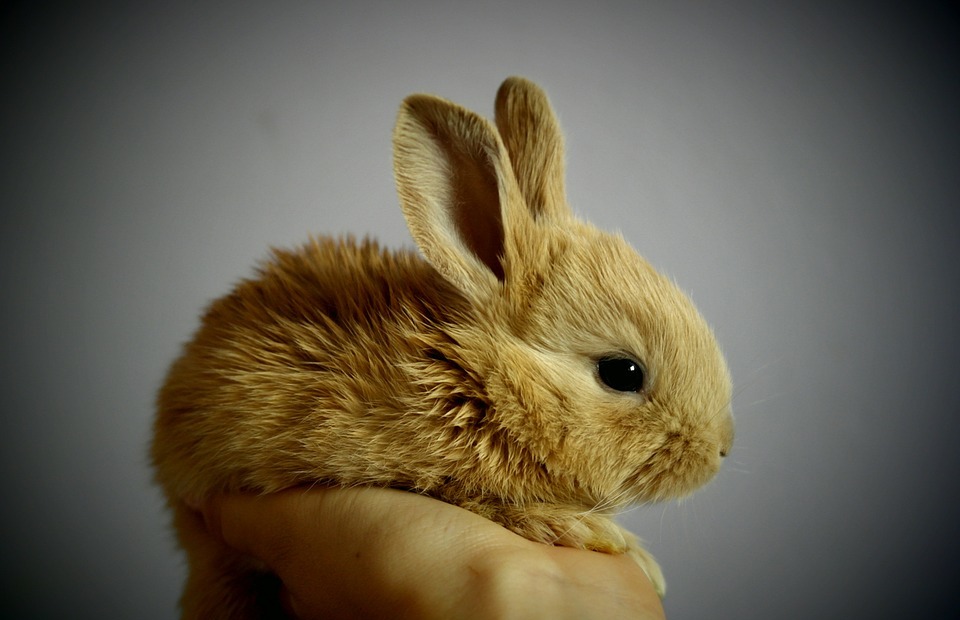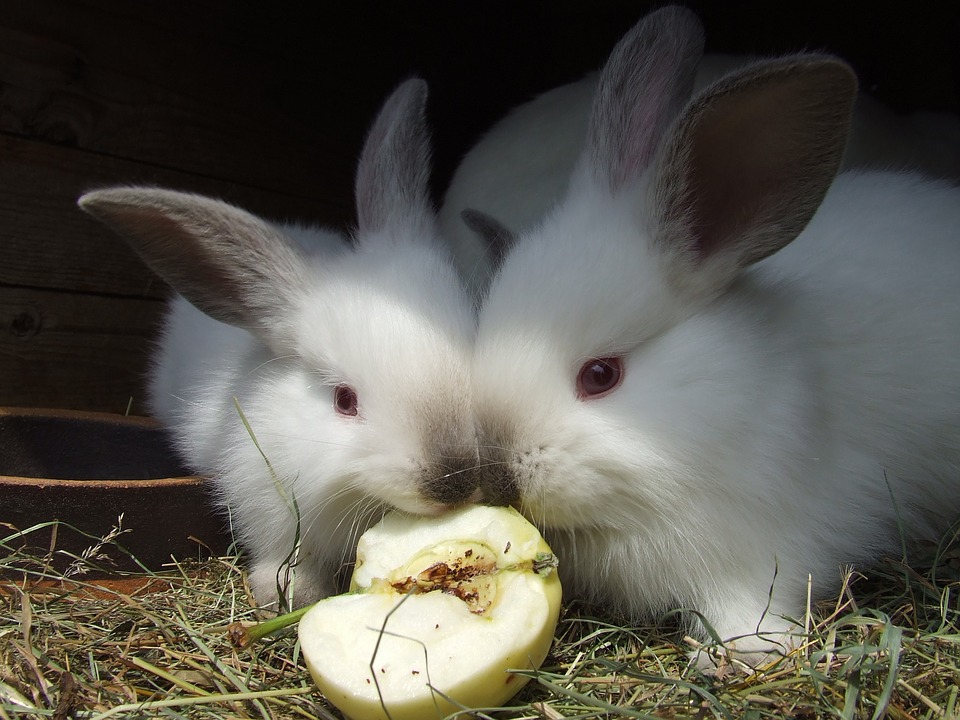The question of whether rabbits can eat popcorn is a common one among bunny owners. While popcorn may seem like a harmless snack, its safety for rabbits is a matter of debate. This article delves into the nutritional value of popcorn, the potential risks associated with it, and provides guidance on how to make informed decisions about incorporating popcorn into your rabbit's diet, if at all.
Part 1: Nutritional Value of Popcorn

1.1. A Source of Fibre: The Good News
Popcorn, being a whole grain, is naturally a source of dietary fibre. Fibre is crucial for rabbits, aiding in healthy digestion and preventing digestive issues like stasis, a potentially life-threatening condition. Fibre helps regulate bowel movements, promoting regular waste elimination and contributing to a healthy gut microbiome.
1.2. Vitamins and Minerals: A Mixed Bag
While popcorn contains some vitamins and minerals, the amounts are not significant enough to make it a primary source of these nutrients for rabbits. It contains trace amounts of Vitamin B complex, iron, magnesium, zinc, and potassium. However, rabbits can easily obtain these nutrients from a balanced diet of hay, fresh vegetables, and commercial rabbit food.
1.3. Calorie and Fat Content: A Potential Drawback
Air-popped popcorn, without added butter or salt, is relatively low in calories and fat. However, the low calorie content doesn't necessarily make it a good choice for rabbits. Rabbits require a high-fibre diet to maintain a healthy weight and digestive system. Overconsumption of low-fibre snacks, like popcorn, can lead to imbalances in their diet and contribute to weight gain.
Part 2: The Risks of Feeding Popcorn to Rabbits

2.1. The Danger of Added Ingredients: A Major Concern
The primary concern with feeding popcorn to rabbits is the presence of added ingredients in commercially prepared popcorn. Butter, salt, sugar, and flavourings, commonly found in pre-packaged popcorn, are extremely harmful to rabbits. These additives can cause obesity, digestive issues, cardiovascular problems, and even lead to the development of diabetes.
2.2. Risk of Choking: A Serious Hazard
Popcorn kernels, especially unpopped ones, present a serious choking hazard for rabbits. Their small size and hard texture make them difficult for rabbits to chew and swallow, potentially leading to airway obstruction. This risk is even higher for young rabbits whose digestive systems are still developing.
2.3. Potential for Digestive Issues: An Upset Stomach
While popcorn provides some fibre, consuming excessive amounts can upset a rabbit's delicate digestive system. This can result in diarrhoea, bloating, gas, and other digestive discomforts.
2.4. The Issue of Mold: A Hidden Threat
Popcorn that has gone stale or been stored improperly can develop mold. Mold exposure is highly toxic to rabbits and can cause respiratory problems, liver damage, and other serious health issues. It is crucial to only use fresh popcorn and inspect it carefully for any signs of mold before offering it to your rabbit.
Part 3: Can Rabbits Eat Popcorn? A Cautious Approach
3.1. The Importance of Moderation: A Key Principle
If you choose to offer popcorn to your rabbit, it should be done in extremely limited quantities and only as an occasional treat. Even then, it should be considered a risky treat due to the potential dangers.
3.2. Choosing the Right Popcorn: A Safe Option
Always opt for air-popped popcorn, free from any added butter, salt, sugar, or flavourings. Ensure the popcorn is fresh, free of mold, and completely cooled before offering it to your rabbit.
3.3. Supervise Consumption: A Safety Net
Closely monitor your rabbit while they are eating popcorn to ensure they don't choke or consume too much. Watch for any signs of discomfort or difficulty breathing. Remove any uneaten popcorn as it can develop mold quickly.
3.4. Introducing Popcorn Gradually: A Careful Introduction
If introducing popcorn for the first time, start with a tiny amount and observe your rabbit's reaction. Look for any signs of digestive upset, such as diarrhoea, bloating, or loss of appetite. If you notice any adverse reactions, discontinue feeding popcorn immediately.
Part 4: Alternatives to Popcorn for Rabbits
4.1. Hay: The Foundation of a Rabbit Diet
Hay should constitute the majority of a rabbit's diet. It provides essential fibre, vitamins, and minerals and helps prevent digestive problems. Offer a variety of hays, including timothy, alfalfa, and oat hay, to ensure a balanced intake of nutrients.
4.2. Fresh Vegetables: A Healthy Supplement
Fresh vegetables, such as leafy greens, bell peppers, and carrots, are a healthy and delicious supplement to a rabbit's diet. Offer a variety of vegetables to provide a wide range of nutrients and prevent boredom.
4.3. Commercial Rabbit Food: A Nutrient Source
Commercial rabbit food can be a useful source of nutrients, but it should be given in moderation and alongside hay and fresh vegetables. Choose a high-quality rabbit food with a high fibre content and low sugar content.
4.4. Occasional Treats: A Responsible Approach
Small, occasional treats, such as a few pellets of plain, unsalted sunflower seeds, can be given sparingly. Limit treats to 5% of a rabbit's daily caloric intake to prevent weight gain and digestive imbalances.
Part 5: Nutritional Considerations for Rabbits
5.1. Understanding Rabbit Digestion: A Complex System
Rabbits have a unique digestive system that relies on a high-fibre diet to function properly. Their digestive system is designed to break down plant matter, not the processed foods often found in human diets.
5.2. The Importance of Fibre: Maintaining Digestive Health
Fibre is essential for rabbits' digestive health, promoting regular bowel movements and preventing digestive issues like stasis. Stasis occurs when the digestive system slows down, causing food to build up in the stomach and intestines, leading to potentially life-threatening complications.
5.3. Calories and Fat: Balancing the Intake
Rabbits need a diet that is low in calories and fat to maintain a healthy weight and prevent obesity. Obesity can lead to various health problems, including heart disease, arthritis, and diabetes.
5.4. Hydration: Crucial for Health
Fresh water should always be available to rabbits. Dehydration can have a negative impact on their digestive health and overall wellbeing.
Part 6: FAQs About Rabbits and Popcorn
6.1. Can Baby Rabbits Eat Popcorn?
No, baby rabbits should not eat popcorn. Their digestive systems are still developing and they are more susceptible to choking and digestive issues.
6.2. Can Rabbits Eat Popcorn Husks?
No, popcorn husks should not be given to rabbits. They are difficult to digest and can cause choking and intestinal blockages.
6.3. How Often Can Rabbits Eat Popcorn?
If you choose to offer popcorn, it should be given only as an occasional treat, perhaps once a week at most.
6.4. What Happens if a Rabbit Eats Too Much Popcorn?
Overconsumption of popcorn can lead to digestive upset, bloating, diarrhoea, and potential choking hazards.
6.5. Can Rabbits Eat Cooked Popcorn?
Cooked popcorn can be more difficult to digest for rabbits and may contain added ingredients that are harmful. It's best to avoid cooked popcorn.
6.6. Is Microwave Popcorn Safe for Rabbits?
Microwave popcorn should never be given to rabbits. It often contains harmful additives and the bag lining can release harmful chemicals during heating.
Conclusion: Prioritising Your Rabbit's Health
While popcorn may seem like a tempting treat for your rabbit, it's important to remember that it can pose significant health risks. The potential for choking, digestive upset, and exposure to harmful ingredients outweighs any potential nutritional benefits.
Instead of popcorn, focus on providing your rabbit with a balanced diet of hay, fresh vegetables, and a small amount of commercial rabbit food. Occasional, carefully chosen treats can be a part of a healthy rabbit diet, but moderation and safety should always be top priorities. By understanding the nutritional needs and potential risks associated with various foods, you can make informed decisions that will help your furry friend live a long and healthy life.
Everyone is watching
-

Do Rabbits Lay Eggs? (The Surprising Truth)
OTHER TYPES OF PETSThis article will unravel the common misconception that rabbits lay eggs, exploring the fascinating world of r...
-

Can Rabbits Eat Grapes? A Guide to Safe Rabbit Treats
OTHER TYPES OF PETSThis comprehensive guide will explore the safety and suitability of grapes for rabbits, providing detailed inf...
-

What's a Group of Rabbits Called? (A Comprehensive Guide)
OTHER TYPES OF PETSThis article delves into the fascinating world of rabbits, exploring the various terms used to describe a grou...
-

Predators That Hunt Rabbits: A Guide to Natural Enemies
OTHER TYPES OF PETSI've always been fascinated by the circle of life, that delicate dance between predator and prey. Growing up ...
-

Are Rabbits Nocturnal Animals?
OTHER TYPES OF PETSThe question of whether rabbits are nocturnal animals is a fascinating one, with a surprisingly complex answer...
